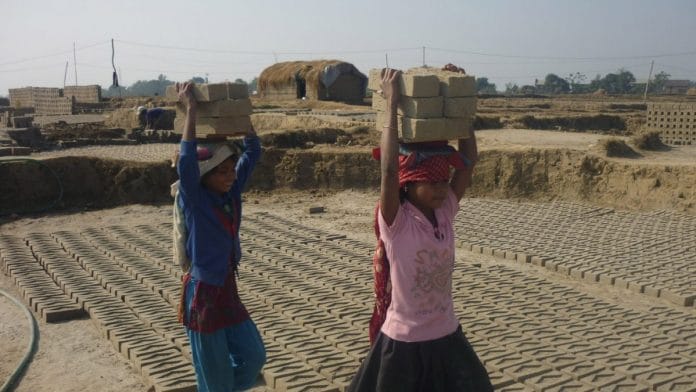New Delhi: An estimated one in six children or 356 million children younger than 18 years were living in extreme poverty before the pandemic, out of whom 53.3 million were in India, a report by the United Nations has revealed.
The study, titled Global Estimate of Children in Monetary Poverty: An Update, was published Tuesday by the World Bank Group and UN Children’s Fund (UNICEF). It consists of surveys from 149 countries and states that the condition of underserved children is set to worsen after the pandemic.
It states that sub-Saharan Africa and South Asia consisted of 84 per cent of the world’s extremely poor children, out of which India and Nigeria accounted for the most. The number of children living in extreme poverty, however, had declined by approximately 29 million between 2013 and 2017.
“The estimates presented in this note do not capture the effects of the COVID-19 crisis on child poverty since all of the household surveys included in our analysis predate this ongoing pandemic. However, it is likely that the estimates of child poverty presented here will worsen as a result of COVID-19’s adverse impact on income generation and food security,” says the report.
It defined extreme poverty to include children in households that struggle to survive on an average of US$ 1.90 (Rs 140) a day or less per person. While the sub-Saharan region accounted for two-thirds of such children, South Asia accounted for nearly one-fifth.
In the East Asia and Pacific, China accounted for the highest number of poor children (11.9 million). The sub-Saharan region had the highest number of children living in poverty, which is 234.1 million.
The report also states that around 102.6 million of the poor children across the world live in families of 10 or more members, and 81.5 million of them had no education. About 41.6 per cent of children who live in fragile and conflict-affected areas lived in extremely poor households, compared to 14.8 per cent of children in other countries.
“These numbers alone should shock anyone. And the scale and depth of what we know about the financial hardships brought on by the pandemic are only set to make matters far worse. Governments urgently need a children’s recovery plan to prevent countless more children and their families from reaching levels of poverty unseen for many, many years,” UNICEF Director of Programmes Sanjay Wijesekera said.
Also read: Choice of work, education, better income needed for bondage survivors to remain free — study






